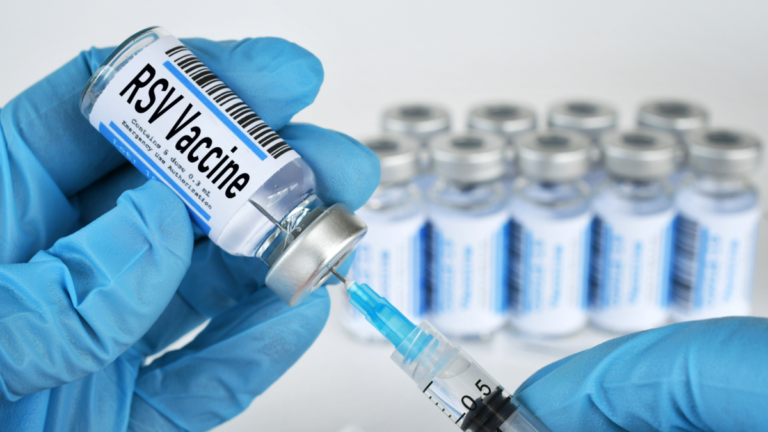The NHS launched a new vaccination programme to protect against respiratory syncytial virus (RSV), in an effort to safeguard the health of older adults aged 75 to 79 and newborn babies across the UK. Announced earlier this year by Steve Russell, Chief Delivery Officer and National Director for Vaccinations and Screening at NHS England, the programme aims to reduce hospital admissions and severe illness caused by RSV, particularly during the peak winter season when the virus typically surges.
RSV is a common respiratory virus that most people will experience multiple times in their lives, with symptoms ranging from mild cold-like effects to severe respiratory complications such as bronchiolitis and pneumonia. While RSV often resolves on its own, it poses a serious risk to vulnerable populations, including infants and older adults, especially those with pre-existing conditions like heart or lung diseases or weakened immune systems. The NHS’s new vaccination effort is expected to significantly reduce the burden of RSV on these groups.
Vaccine Eligibility and Implementation
Since the beginning of September, all adults turning 75 are being invited to receive the RSV vaccine through their GP practices, remaining eligible until the day before their 80th birthday. A one-off catch-up campaign is also underway for individuals aged 75-79 as of 1 September 2024, with a goal to vaccinate the majority by 31 August 2025. This approach ensures that even those who recently aged into the eligibility range are promptly covered, aligning with the Joint Committee on Vaccination and Immunisation’s guidance.
The vaccine rollout also targets pregnant women, offering protection from the 28th week of pregnancy to safeguard their newborns during the first few months of life. Maternity teams and health professionals are actively discussing vaccination options with expectant mothers, ensuring they can access the RSV vaccine along with other critical immunisations like those for whooping cough and flu. The goal is to provide comprehensive protection against multiple respiratory threats in one convenient appointment, though the RSV vaccine is available year-round, unlike the seasonal flu and COVID-19 vaccines.
Comparing RSV Vaccines
| Vaccine | Target Age | Type | Efficacy | Notable Features |
|---|---|---|---|---|
| RSV-O (Nirsevimab) | Infants and young children | Monoclonal antibody | High efficacy in preventing severe RSV disease | Long-acting, single dose |
| RSV-V (Palivizumab) | Infants at high risk (premature birth, chronic lung disease, congenital heart defects) | Monoclonal antibody | Effective in preventing severe RSV disease | Requires multiple doses throughout the RSV season |
| RSV-V (Norovirus) | Adults | Live attenuated virus | Promising results in clinical trials | May provide broader protection against RSV strains |
Early Results and Expected Benefits
The initial rollout has been met with strong engagement, reflecting widespread recognition of the vaccine’s potential to prevent serious illness. Early analyses suggest that the RSV vaccination programme could prevent approximately 5,000 hospitalisations and 15,000 emergency department visits among infants during a typical RSV season in England. For infants under 12 months, a maternal vaccination uptake rate of 60% could result in 70,000 fewer RSV cases, 20,000 fewer GP consultations, and prevent more than 200 admissions to intensive care units.
The impact on older adults is also expected to be substantial. The catch-up programme for those aged 75-79 is projected to prevent around 2,500 hospital admissions, 15,000 GP visits, and 60,000 RSV cases within this demographic. By reducing the incidence of severe illness, the programme aims not only to improve individual health outcomes but also to alleviate the significant seasonal burden on NHS services.
This vaccine rollout reflects a broader commitment within the NHS to prioritise preventive healthcare measures, especially for those at heightened risk of severe respiratory infections. Steve Russell acknowledged the efforts of NHS staff and partners, who worked tirelessly to implement the vaccine programme swiftly and effectively. As vaccination continues, the focus remains on maximising coverage before the peak RSV season, ensuring that vulnerable individuals receive protection when they need it most.
Aligning with Government’s Preventive Health Strategy
The RSV vaccine rollout aligns with Prime Minister Keir Starmer’s recent calls for a preventive approach to healthcare. In light of recent reports highlighting the NHS’s ongoing challenges, including a £37 billion shortfall in capital spending compared to peer countries since the 2010s, Starmer has emphasised the importance of early intervention and prevention. “We have to go to a preventive model; I’m absolutely convinced about that,” he said, underscoring his commitment to investing in health measures that can reduce demand on NHS services and improve public health outcomes.
Starmer’s stance on prioritising prevention, even when faced with potential controversy, reflects a broader shift towards proactive health measures across various domains, including mental health, diet, and lifestyle. The successful rollout of the RSV vaccine is expected to serve as a cornerstone of this preventive health strategy, demonstrating the tangible benefits of early intervention in reducing illness and hospitalisations among the UK’s most vulnerable populations.
As the NHS continues to drive forward with this initiative, the success of the RSV vaccination programme will be closely watched as a model for future public health efforts. By protecting older adults and newborns from RSV, the NHS not only addresses immediate health risks but also sets the stage for a more resilient healthcare system that prioritises prevention and proactive care.

